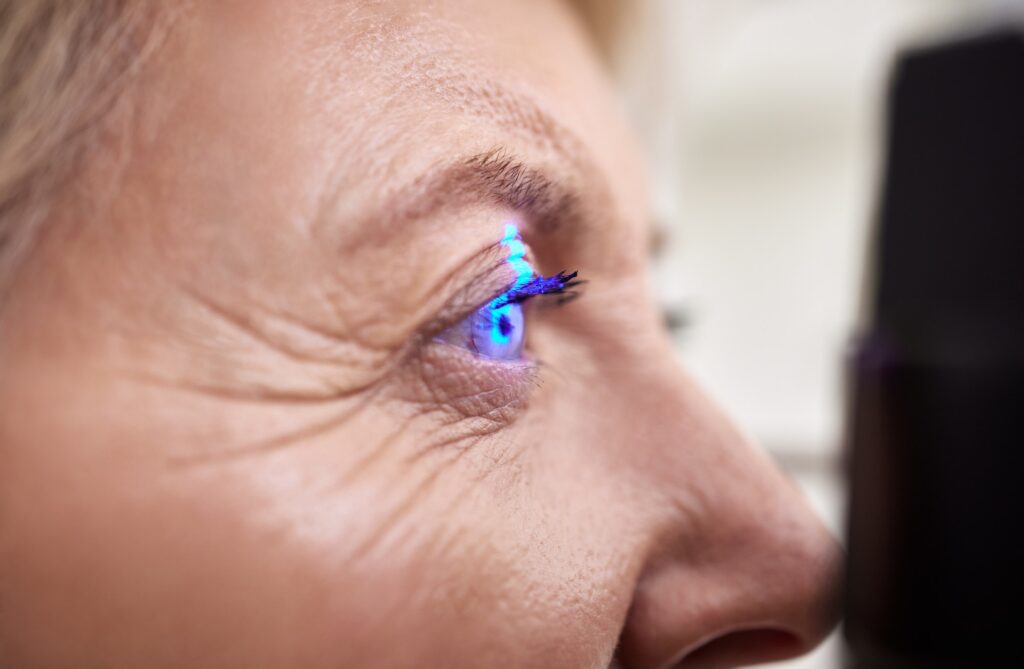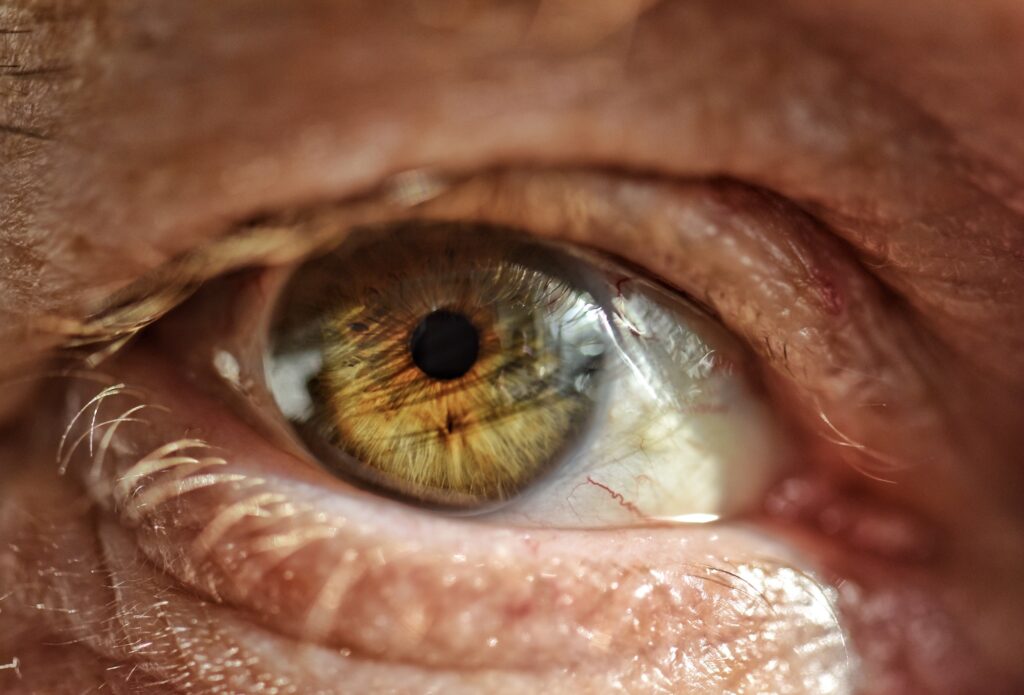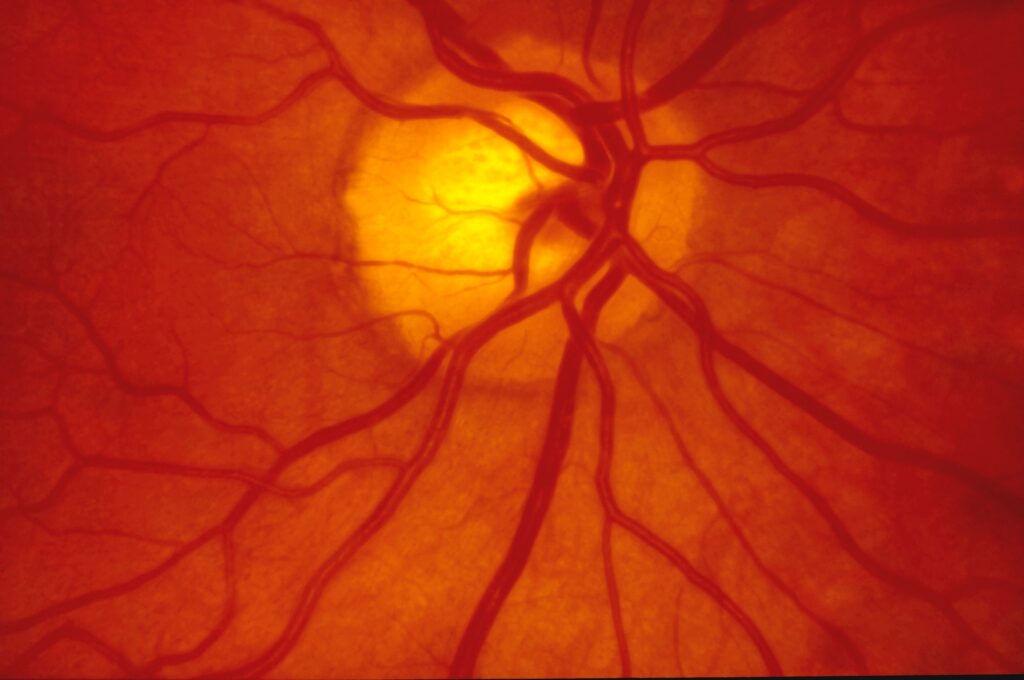Proliferative Diabetic Retinopathy

Proliferative diabetic retinopathy (PDR) is a complication of diabetes caused by changes in the blood vessels of the eye. If you have diabetes, your body does not use and store sugar properly. High blood sugar levels create changes in the veins, arteries, and capillaries that carry blood throughout the body. This includes the tiny blood vessels in the retina, the light-sensitive nerve layer that lines the back of the eye.
In PDR, the retinal blood vessels are so damaged they close off. In response, the retina grows new, fragile blood vessels. Unfortunately, these new blood vessels are abnormal and grow on the surface of the retina, so they do not resupply the retina with blood.
Occasionally, these new blood vessels bleed and cause a vitreous hemorrhage. Blood in the vitreous blocks light rays from reaching the retina. A small amount of blood will cause dark floaters, while a large hemorrhage might block all vision, leaving only light and dark perception. The new blood vessels can also cause scar tissue to grow. The scar tissue shrinks, wrinkling and pulling on the retina and distorting vision. If the pulling is severe, the macula may detach and cause vision loss.
Laser surgery may be used to shrink the abnormal blood vessels and reduce the risk of bleeding. The body will usually absorb blood from a vitreous hemorrhage, but that can take days, months, or even years. If the vitreous hemorrhage does not clear within a reasonable time, or if a retinal detachment is detected, an operation called a vitrectomy can be performed. During a vitrectomy, the eye surgeon removes the hemorrhage and any scar tissue that has developed, and performs laser treatment to prevent new abnormal vessel growth.
People with PDR sometimes have no symptoms until it is too late to treat them. The retina may be badly injured before there is any change in vision. There is evidence to suggest that rigorous control of blood sugar decreases the chance of developing serious proliferative diabetic retinopathy. Because PDR often has no symptoms, if you have any form of diabetes you should have your eyes examined regularly by an ophthalmologist.
locations
Charlottesville
620 Berkmar Circle | Charlottesville, VA 22901
Phone: 434-220-3420
Mon-Fri: 8am-5pm
Fishersville
17 N. Medical Park Drive | Fishersville, VA 22939
Phone: 540-213-7484 | Fax: 540-213-7729
Mon-Fri: 8am-5pm
CONTACT US
If you suffer from any of the signs or symptoms listed, call RetinaCare of Virginia today to schedule your consultation.



